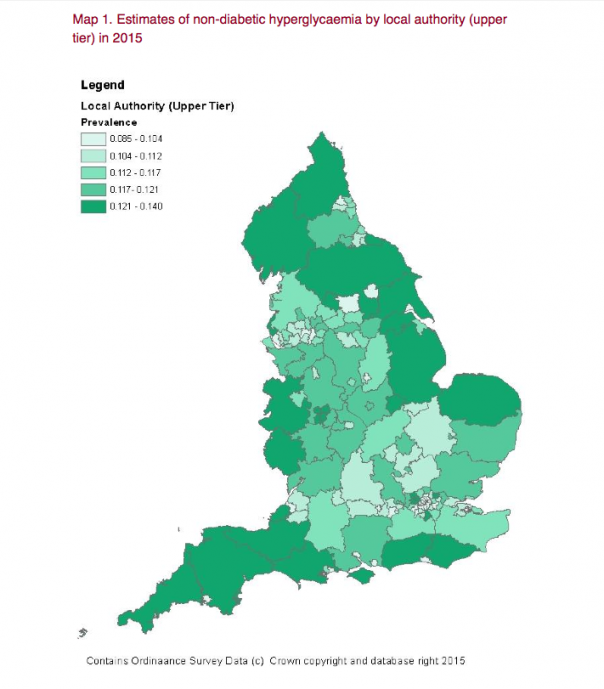Five million adults at risk of developing Type 2 diabetes

Around five million people are at risk of developing Type 2 diabetes, according to new figures released by Public Health England.
The latest analysis from PHE’s National Cardiovascular Health Intelligence Network (NCVIN) estimates 5,047,891 adults in England are pre-diabetic, also known as non-diabetic hyperglycaemia, meaning they are at risk of developing the condition.
Type 2 diabetes costs the NHS £8.8bn every year, affects over three million people in the UK and results in around 22,000 early deaths, according to the health service.
However, health experts believe the disease is preventable and over a quarter of those at risk can do so by changes to diet and exercise.
The analysis was commissioned by the NHS Diabetes Prevention Programme (NHS DPP), which supports people in reducing their risk of developing Type 2 diabetes by helping them lose weight, be more active and have a healthier diet.
PHE found that programmes similar to the NHS DPP can be successful in preventing 26% of people at high risk of the Type 2 diabetes from going on to develop the condition. People supported by the DPP lose on average 1.57kg more weight than those not on the programme aiming to reduce the risk.
NHS DPP will now offer at least nine months of information, support, group and one-to-one sessions on weight loss, physical activity and diet. Practitioners, clinicians, academics and the public are currently being consulted on a proposed outline of the programme and a phased national rollout is expected in 2016.
Duncan Selbie, chief executive of PHE, said: “We know how to lower the risk of developing Type 2 diabetes: lose weight, exercise and eat healthily, but it’s hard to do it alone. PHE’s evidence review shows that supporting people along the way will help them protect their health and that’s what our prevention programme will do.”
Jonathan Valabhji, national clinical director for diabetes and obesity at NHS England, said: “There are too many people on the cusp of developing Type 2 diabetes and we can change that. The growing body of evidence makes us confident that our NHS Diabetes Prevention Programme will reduce the numbers of those at risk going on to develop the debilitating disease.”
The PHE figures show residents of Harrow as most at risk of the disease with 14% prevalence in the area, whereas those living in Brighton & Hove are least at risk with 8.6% prevalence.
Higher rates were also found in areas with large ethnic minority populations or older populations, or both. Lifestyle factors, including weight, physical activity and diet, are important like the inherent factors of ageing and ethnic background in determining the risk of developing Type 2 diabetes.
The figures released today echo research published last week which by Diabetes UK which revealed over three million people are now diagnosed with diabetes, a 60% increase in the last 10 years.
Diabetes UK called for an urgent need for effective care for sufferers and warned that failure to act could end up bringing down the NHS.
Barbara Young, chief executive of Diabetes UK, said: “The NHS spends 10% of its entire budget managing diabetes and unless we get better at preventing Type 2 diabetes this figure will rise to unsustainable levels.”
